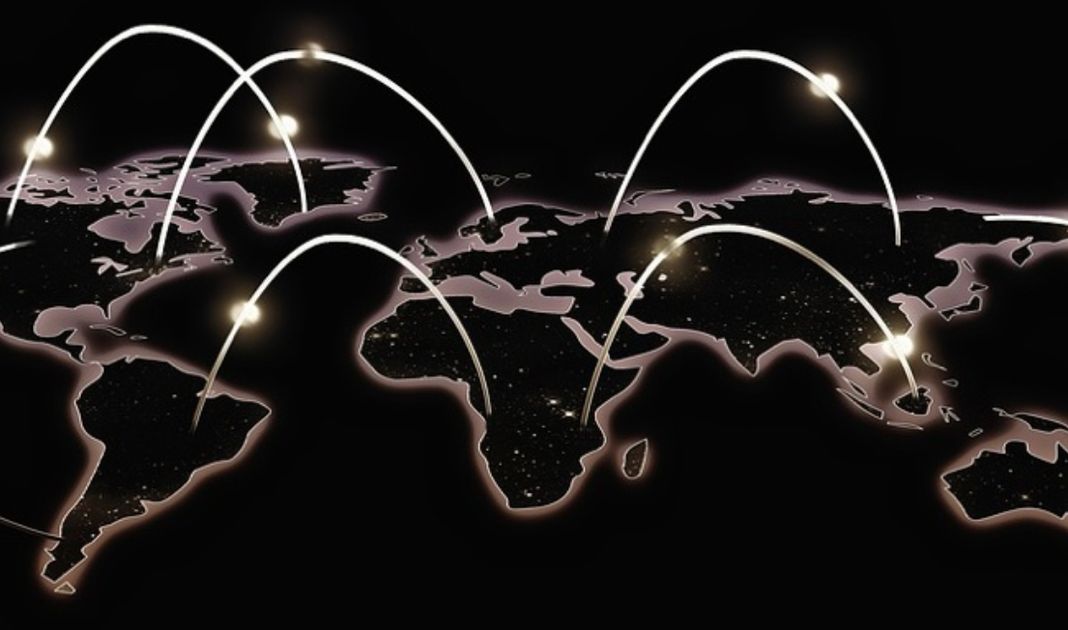On deglobalisation – December 2020

(Source: pixabay.com)
Nevertheless, before World War I, it was the global trade in goods that had “jammed” irresolvable conflicting interests between Germany and Great Britain and consequently led to war. The reason was the ruthless dynamics of Going Concern(described in detail by Halford Mackinder), different in the two political organisms – British and German. With time, free, organically-specialised development, based on global trade, led to unequal growth between countries, due to obvious differences and random phenomena – such as climate, number of employees, seasons, distance, good and bad political decisions, short- and long-term price fluctuations, petrification of demand, structure of the economy (one global market more and more dependent on financial services, the other on capital-intensive production for its own, then regional and then global market), etc.
Unnoticed, the entire complex socio-organisational mechanism of Going Concern that is reluctant to face change (because it does not see the need for changes in the short term and does not like them, especially changes for the worse), loses out every day to a second competing Going Concern.
The key to understanding this mechanism is that over time, growth between countries and specific industries is uneven, introducing a new translation of political influence and expectations, and this in order to satisfy precisely the merciless Going Concern that politicians cannot resist because it is the foundational social organisation and thus the foundation of political power.
And so, after the crisis of 1878, British agriculture lost its importance and profitability. With time it fell into decline, but industry continued to develop. However, even between the various branches of British industry, uneven growth emerged in the following decades: the textile and shipbuilding industries continued to grow in strength, but the chemical and electrical industries did not grow as fast, with strong competition from Germany and other countries that during this period began to specialise in these areas of production. Then, naturally, in order to provide jobs and adequate returns on private investment capital, Great Britain, with its policy, led to the further development of the industries which had previously done well. These industries continued to grow in strength and at one point, as a result of uncontrollable overgrowth, became very dependent on outlets competing with Germany.
Let’s now jump to the 21st century and do a little intellectual exercise: what has happened to the steel industry in the US versus China in the last 30 years? What has happened to the production of electronics, computers, more and more cars, and so higher and higher in the division of labour and the division of profit margins from the profits and access to the global market, to the latest inventions and technologies establishing new technological cycles such as artificial intelligence, 5G, Huawei, aircraft production; and other sectors, where China is chasing or overtaking the US?
Competing with Germany, unable to apply customs barriers in the global economy – since as a maritime power Great Britain benefited from the volume of global trade – London began, indirectly and subtly, to influence key non-European markets, to scare Germany and its local contractors with its maritime power receiving products from Europe by quite suggestively reminding them who determines the safety of trade and sea transport.
Thus, at the end of the 19th century, there was pressure, first in Great Britain, and then in Germany, to recapitalise the fleet and expand its capabilities, as the United Kingdom, in world trade policy, entered the de facto path of violence, or at least the threat of its use.
Demonstrating its maritime dominance, including the control of communication routes through which competitors’ goods would have to be transported, and in order to protect its markets in South America, Great Britain drove out German ships during the so-called Incident in Manila in 1898, during the US war with Spain, and during the Boer War, it regularly displaced German ships from the waters of South Africa, showing the world the German sensitivity to disruptions in maritime transport. It also assisted the Japanese side in the war with Russia to keep the free and large Chinese market constantly open to its goods.
As Mackinder wrote, the producers of cotton goods in Lancashire must have realized that their free trade with India was enforced by the naval power of the Empire. Germany understood this very quickly and made an effort to build a large fleet to open up and keep markets for itself. This, in turn, triggered the British policy of encircling Germany with alliances in Europe by using its military and geopolitical sensitivity with attacks from both directions: East and West, which resulted in World War I, its extratime period in the form of World War II, finally resulting in the end of Europe’s geopolitical domination in world.
How this resembles the current situation in December 2020!
In the context of the decisions that will be made by the new Biden administration, it is worth remembering that, as Mackinder argued, the overwhelming influence and dynamics of Going Concernare very difficult to retain in democratic systems, as they lack the ability to look long-term due to the need to make frequent choices. The entrenched, petrified interests of the majority enjoying the present-day benefits of this and no other Going Concern state can cause geostrategic blindness.
In this context, it is worth considering the particular interests (and influences) of the Wall Street financiers or the digital empires of the US west coast making a fortune on the global market, even while this very structure itself has already started to destroy the foundations of US power, a radical point raised – correctly, it happens – by the people of the outgoing Trump Administration.
Established interests have a tendency to cement themselves even more. The interests of employees and employers – to continue working, the interests of capital – to make money on trading capital in the same way, the interests of buyers and sellers – to do it in specific, predictable ways that can be established, consolidated and thus to live peacefully, and unconsciously leading to tragedy.
Political leaders deciding on the future must remember Mackinder’s admonition in 1919 that both capital and labour always have the disadvantage of seeing their own particular interests in the short term. At times like this, great statesmen are needed who see further and are determined to change the Going Concern.
It is not very comforting, but in autocratic regimes – for other reasons – it is also difficult to change Going Concern. In a democracy, politicians do not want to change the routine of actions that give peace and re-election, and in an autocracy, the authorities usually do not have the courage to change and modify the Going Concern, because they are afraid of a violent social revolution and a revolt within the power camp, of whom usually a large part, perhaps the majority, personally rely on the existing Going Concern. I do not know if this is ultimately comforting, especially since you can see with the naked eye how China uses the current Going Concern and does not want to change anything (except makeup), not only because of the fear of a revolt of public discontent, when it has massively performed in just one generation an incomparable leap from poverty and backwardness to modernity and great hopes for the future, incomparable to anything in the history of the world.
Chinese society may not understand why it should give up on continuing this wonderful development – just to please the Americans. And thus perhaps to avoid a war. To understand this, one should understand the structure of the Going Concern phenomenon, which is hard to expect from 1.7 billion people (roughly the same combined number that live in the USA and China) engaged in ordinary matters of everyday life.
At the end of December 2020, both trains are heading towards each other, on the same track and accelerating.
Autor
Jacek Bartosiak
CEO and Founder of Strategy&Future, author of bestselling books.






Trwa ładowanie...